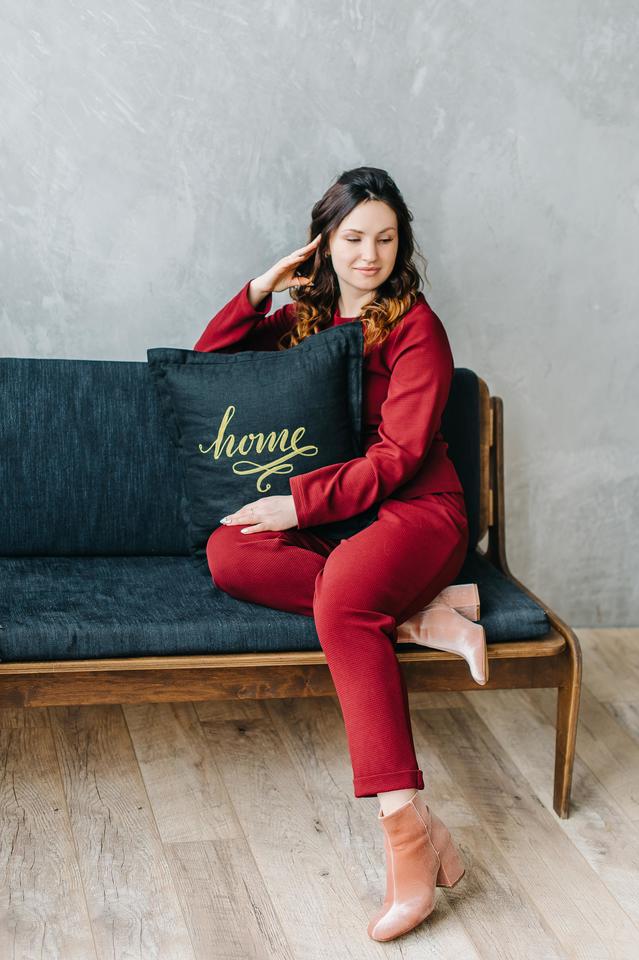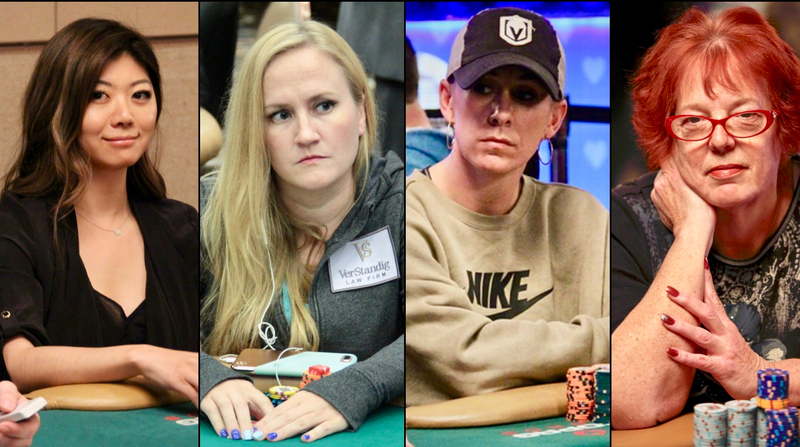
Pros: Xuan Liu, Jamie Kerstetter, Danielle Andersen, and Linda Johnson
Craig Tapscott: Women can sometimes experience a different set of challenges at the poker table. Can you talk about some experiences that have made you a stronger player?
Xuan Liu: I have loved the love affair with poker and strategy games since childhood, and first started playing poker for real money during the Moneymaker boom. I had other friends who were just as interested in the game as I was, but I was by far the most diligent and delved into every poker book and resource available at the time. When you grow up without much and have always worked in jobs that pay an hourly wage, the ability to pay your tuition or cover your entire semester's rent in one session becomes really attractive. Unsurprisingly and somewhat ironic, I couldn't keep my grades up due to this distraction and lost my scholarship.
When I first played in the United States, I had great difficulties. I was shot at an angle and I was pulled left and right. I was even held at gunpoint by LAPD . I learned to put up a wall and I'm grateful that those lessons happened relatively early in my career. I was lucky to have people who believed in me and reached out a helping hand when I was down.
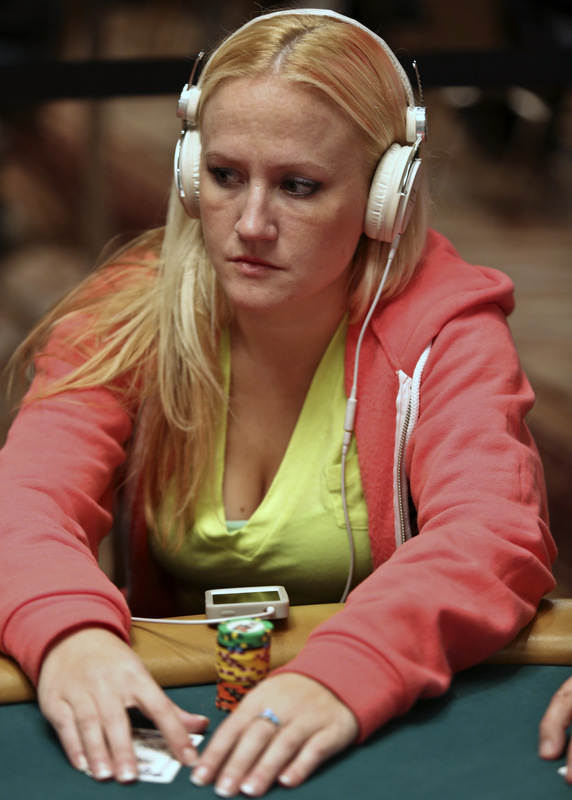 Jamie Kerstetter: I'm not sure if surviving adversity at the tables really made me a stronger player because it didn't teach me anything strategic about the game itself. But I think some of the annoyances that women get from time to time can be an occasion for self-reflection. The question is: is poker something I still want to do? Is it still fun? Am I still passionate about learning and improving?
Jamie Kerstetter: I'm not sure if surviving adversity at the tables really made me a stronger player because it didn't teach me anything strategic about the game itself. But I think some of the annoyances that women get from time to time can be an occasion for self-reflection. The question is: is poker something I still want to do? Is it still fun? Am I still passionate about learning and improving?
Usually, after a bad experience involving a losing session or a downswing, I think about things like this, which I should do often anyway, to make sure I'm dedicating my time and life to a worthwhile endeavor that will lead to fulfillment.
Danielle Andersen: I feel blessed that I accidentally spent the first seven years of my professional poker career playing online. To be honest, I wasn't very tuned into what was going on in the poker world, so I didn't really realize that being a woman was something special. We are all the same behind the computer screen. When I sat down to my first live game, I considered myself a successful, confident poker player. So it surprised me that I initially felt uncomfortable and intimidated as (usually) the only woman at the table.
There was no reason for me to feel this way. I knew I had a better resume and more experience than many at the table, but I felt like a cheater who didn't fit in. There was no incident that helped me overcome this feeling, but every day I just forced myself to show up and every day I became more comfortable and confident.
I know firsthand that the poker table can be an intimidating place for a woman, especially one who is new to the game, but I think the greatest growth in poker and life comes from pushing the limits of our comfort zone. I could have just run home and kept clicking buttons from the comfort of my office, but I suspected that if I could overcome my insecurities, I would love live poker. And I was right. The cumulative experience of all those sessions where I faced an uncomfortable environment until it became a comfortable environment allowed me to become a stronger (and happier) player.
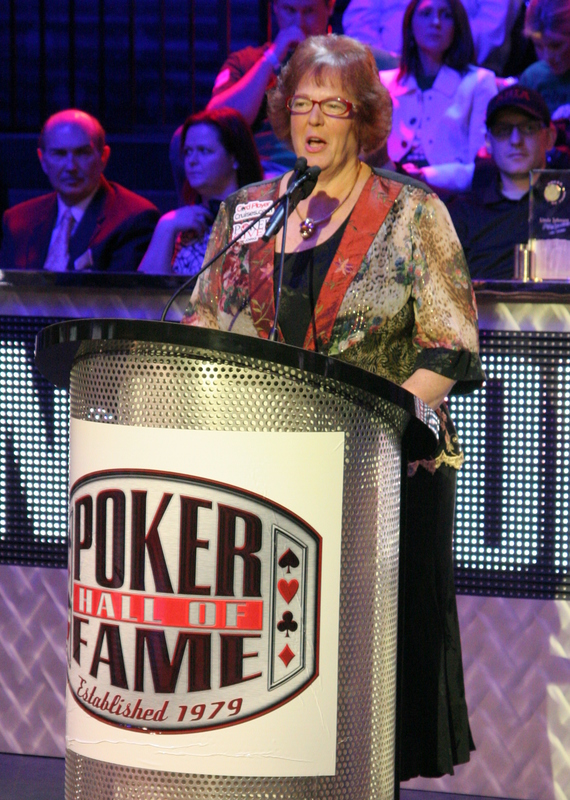
My scariest moment happened at the beginning of the Las Vegas club '80s. I entered the $ 22 event and apparently was the first woman to perform at this venue. The game room manager said to me, "Hello, baby!" The men were not very friendly. When I got to the final table we took a break and I could see eight of my opponents cowering and conspiring to get me out of the tournament. There were even terrible threats made to me about what would happen to me if I won.
Back then, only a few women played professionally in Las Vegas. I've met three types of men. The first type was hostile to any woman who played. I've learned to develop a thick skin and not let their comments affect me. The second type was condescending. The third type was caring and almost "paternal". Unfortunately, the third type was less.
The atmosphere in the poker room today is very female-friendly, although you still occasionally meet a man who thinks he's superior and tries to make it inconvenient for them to play. I think dealers and people on the floor in general are better trained to deal with these situations and I encourage more women to play our great game.
Craig Tapscott: What was your first poker experience that really inspired you to study the game deeper? How have you improved?
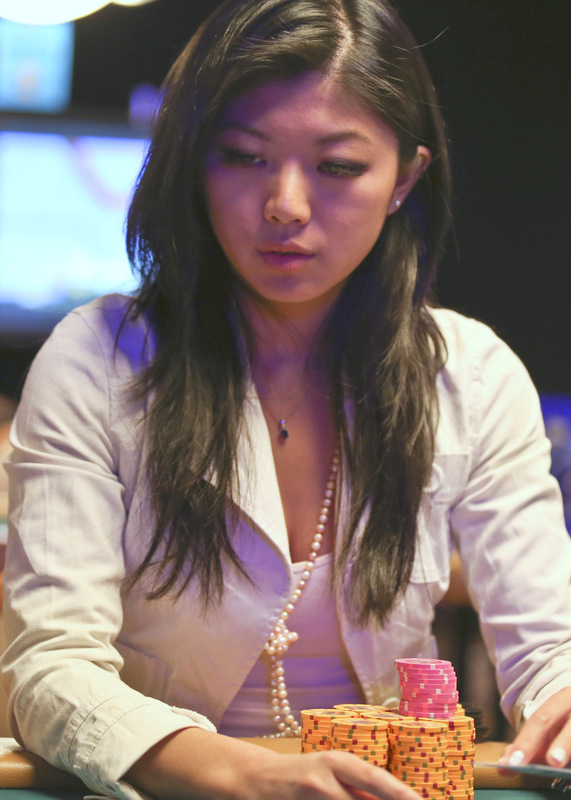 Xuan Liu: My first few European Poker Tour experiences were solo tours, but I quickly started attracting good players after seeing the same faces at every stop. At the time, I was still doing all the calculations in Mandarin Chinese, so it was a bit difficult for me to discuss hand history, even though I was hanging out with all these elite players. I've always been a great observer, so I doubled that skill and learned a lot from osmosis.
Xuan Liu: My first few European Poker Tour experiences were solo tours, but I quickly started attracting good players after seeing the same faces at every stop. At the time, I was still doing all the calculations in Mandarin Chinese, so it was a bit difficult for me to discuss hand history, even though I was hanging out with all these elite players. I've always been a great observer, so I doubled that skill and learned a lot from osmosis.
Looking back, I wish I had been more involved and asked more questions. I definitely had a complex where I was worried about sounding stupid and really wanted to be liked. This, coupled with my unwavering independence and tenacity, meant that I learned a lot about community, myself, and finance through trial and error. At first I just wanted to improve my reputation and learn, so I made sure I didn't give anyone a reason to gossip or say something about me that could damage my reputation and close the door. Eventually I realized that what others think is beyond my control and I can only make decisions based on the information I have at the time.
Some people find it easier for women because we can use our social skills and distinctive qualities to network and access the best poker minds. While this may be true if you are young, attractive and socially fit, the part of the gender that does not tick these boxes can expect standard treatment to range from being simply ignored to being blatantly harassed and kicked out of an elite community.
But of all the nasty things I've witnessed and experienced in the industry, the dynamic that pisses me off the most is when other female athletes are on an equal or higher level than you. competition. Industry perpetuates the aura of scarcity and pits us against each other. One of my biggest annoyances is when someone tries to compliment me by putting someone else down. There's plenty of room for everyone to shine.
Jamie Kerstetter: Moving to Rosarito Beach in Mexico a year after Black Friday and being surrounded by some successful online players who lived and breathed poker was my first introduction to just how complicated poker can be. I also learned how hard top players were willing to work to be the best. It was the first time I really felt like I was fully immersed in poker, instead of telling myself I was playing poker "between work" or treating it as a hobby like I always did in the past.
No matter how hard we all tried to take mental breaks from the game, there was always a discussion of stray hand histories over dinner or on the beach. Being around people who really loved poker for the first time and were willing to discuss not only strategy for using the game but also their general approach to learning the game was invaluable at that time.

I should have read some books, joined poker forums and watched some strategy videos. But I didn't because honestly it just didn't sound fun and I couldn't be bothered to stop clicking buttons long enough to learn. Fortunately, Kory also loved poker and took a more careful approach to the game. He understood concepts like pot odds, bankroll management and variance before I did, and tried to give me valuable information. I wasn't the best student (I was sure sitting with half my bankroll on the table would end up fine!), but he was a persistent teacher and I eventually came to understand some of these important concepts on my own.
Working with poker author and mental coach Tommy Angelo was a turning point that really changed the way I think about poker. I really struggled with the emotional ups and downs of being a professional gambler. My moods off the table were often dictated by the results at the table, which was unfair to my family and me. Tommy has really helped me learn to control my emotions better, which has led to less tilt, higher profits, and a much happier home life. I've seen many poker players who were much more strategically gifted than I was as professional poker players because they didn't have the emotional fortitude to deal with the ups and downs. I highly recommend it to players looking to improve themselves so as not to overlook the importance of working on their mental game.
Linda Johnson: When I turned 21, I started going to Las Vegas to play blackjack. My father told me that if I wanted to play, I should learn to play poker so that I wouldn't play against the casino. I bought myself a few books (there weren't many at the time) and learned the basics of the game. I knew right away that I would love this game.
My first live experience was with my co-workers at the post office. Eventually I became a permanent winner and was no longer welcome in the game. After work, I started going to Gardena cardrooms, and on my days off I flew to Las Vegas. Poker was my niche and I knew I could excel in it with a lot of work and study. I realized that poker is a game that can be beaten if I played better than my opponents.
I bought every poker book I could find, talked about poker with friends and attended poker seminars. I played poker every free minute of the day and loved it! I finally felt I could make a living playing poker, so I quit my secure high-level government job at the post office and moved to Las Vegas. It was the best decision in my life.
Poker is my passion. I never stop learning and studying. I've read hundreds of poker books. I joined several poker newsgroups. I participated and then eventually taught WPT boot camp. People now have far more resources at their disposal to improve their poker skills than when I first got to know the game. There are magazines, online training sites, videos, trainer sites, etc. Unlike roulette and craps, poker is a game to beat if you are willing to get the job done and take the time to learn the game. ♠
Xuan Liu is an instructor at Poker Powher and runs her own real estate business. He has over $3 million in total winnings in live and online tournaments, including $ 600,000 points earned at PokerStars Caribbean Adventure and another $ 524,000 earned at EPT The main event in San Remo. Liu lives in Vancouver, Canada with her rescue mini poodle Didi.
Jamie Kerstetter is a professional poker player and broadcaster, commentating on various poker outings including WPT , PokerGO and WSOP . She has been working for the last two years WSOP main event in ESPN alongside Lon McEachern and Norman Chad, receiving a Global Poker Award nomination for Broadcaster of the Year. He hosts The Rake, Run It Once podcast.
Danielle 'dmoongirl' Andersen started playing online in 2003 and is one of the highest paid female online cash game players in history. She appeared in the 2013 film Bet, Raise, Fold which documented the rise and fall of online poker in the United States. Andersen is part of the LearnWPT team of instructors.
Linda Johnson is known as the "First Lady Of Poker" and has a World Series of Poker bracelet. She is a proud member of the Poker Hall of Fame and Women in Poker Hall of Fame, and is also a co-founder TDA (Association of Tournament Directors) and co-founder of Pokergives.org. She was the studio announcer for the World Poker Tour during its first six seasons. Johnson is also a partner in Card Player Cruises and former publisher and owner of Card Player Magazine.

